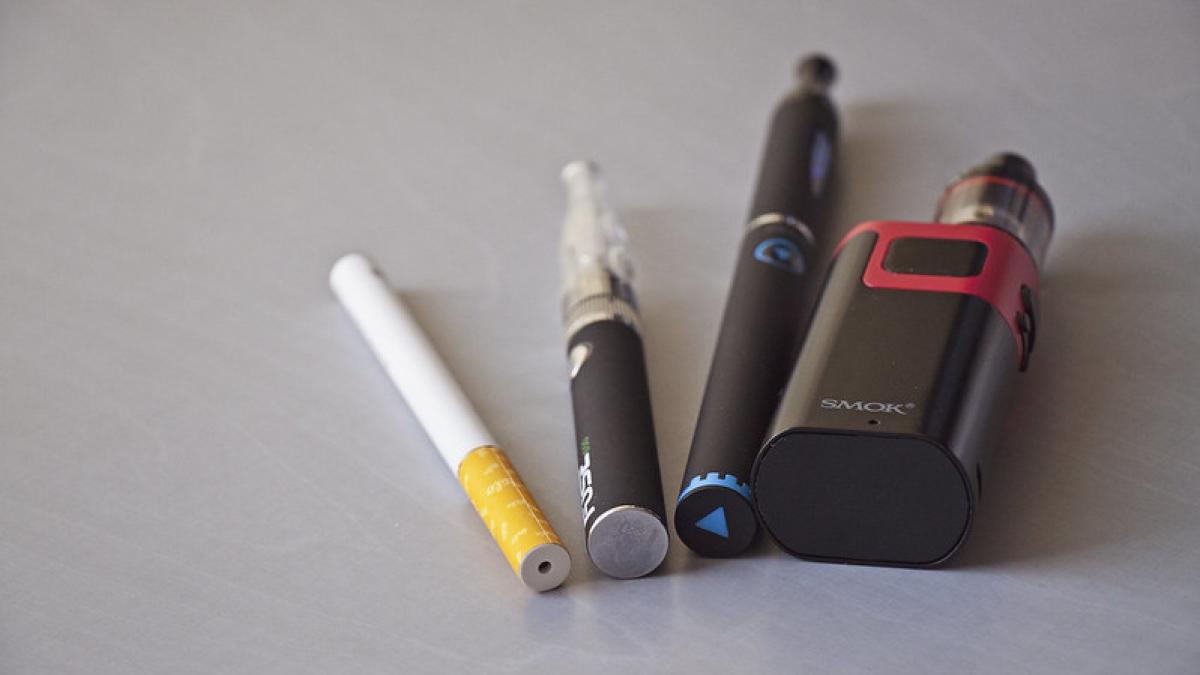
The popularity of vaping among teens has exploded in recent years.
For the first time EDGE's goes virtual, allowing for the participation of scientists and teachers from across the country.
The science on the health impacts of vaping is evolving quickly. At the same time, the number of teens and pre-teens who vape is increasing dramatically. Teachers want the latest information to help educate their students about the risks of vaping. This is where EDGE plays a role by connecting high school teachers and scientists through its long-running Academy for Teaching About Health and Environmental Interactions (ATHENA).
In response to requests from health teachers, the 2019 ATHENA workshop focused on vaping. Since then, e-cigarette or vaping product use-associated lung injury (EVALI) has been recognized as a health risk and identified as the cause of over 2,800 hospitalizations and 68 deaths in the United States. Vaping has also been found to severely increase the risk of COVID-19 in teens and young adults. Teachers are eager for updates from the scientific community.
In 2020, the EDGE Center was funded by a supplemental grant from the National Institutes of Environmental Health Sciences (NIEHS) to collaborate with the University of North Carolina, Chapel Hill, the University of Rochester, and the University of Iowa to develop vaping curricula for high school teachers and the public.
As the 2020 ATHENA workshop went online due to the global pandemic, the NIEHS supplement allowed EDGE to bring in expertise from others centers and, for the first time ever, to include high school teachers from outside Washington State.
The 2020 cohort included 11 high school health, physical education, family consumer science and biology teachers from Washington, New York, and North Carolina. They were joined for the two-day workshop by ATHENA veterans, Lindzee Alvarez, Jay Young, and Marilyn Hair.
On the first day, participants heard from three scientists with expertise in vaping. EDGE Director Dr. Terrance Kavanagh spoke about research from his lab on the role of glutathione in regulating the cellular response to compounds in e-liquid. Elise Hickman, a graduate student in the lab of Dr. Ilona Jaspers at University of North Carolina, Chapel Hill, presented about the effects of flavorings on cells in the respiratory tract. Dr. Scott McIntosh of the University of Rochester finished the day by talking about strategies for smoking and vaping cessation.
On the second day, teachers worked in small groups to pilot three new pieces of curriculum related to vaping. The first of these was a Science Take-Out kit titled "Are Flavored E-Cigarettes Harmful?" developed by Dr. Dina Markowitz of the University of Rochester. The second was an online activity developed by Sharon Dyches and Dr. Lisa Hayward of EDGE from another of Markowitz's Science Take-Out kits titled "A Case of Severe Lung Illness." Finally, Dana Haine and Elise Hickman of the University of North Carolina, Chapel Hill presented an activity exploring the health effects of flavored e-cigarettes. Teachers were also pointed to the digital breakout developed by Dyches and Hayward for the 2019 ATHENA workshop.
At the end of the workshop, 100% of the nine participants who filled out an evaluation reported that the learning objectives were met and that they would recommend the workshop to a colleague. "I loved it all!" wrote one participant. Others expressed appreciation for better information on an important topic about which there is little formal guidance for teachers.

